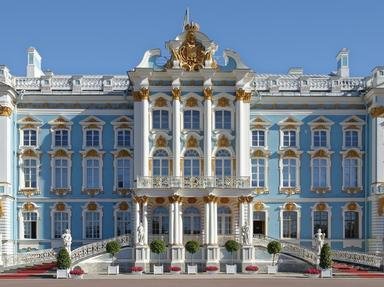Quiz Answer Key and Fun Facts
1. Alexander was educated from his youth to become czar.
2. Alexander married Princess Dagmar of Denmark. He was not the man she had originally expected to marry. Who was the man to whom she was engaged?
3. How many children did Alexander III and his wife, Maria Fedorovna, have?
4. Music was a passion of Alexander's, both as a listener as well as a performing member. It is said that on several occasions he would join the group performing and not end the evening until he had performed on almost every instrument. After becoming czar, he limited his performance to a single instrument in an impromptu palace orchestra. What was that instrument?
5. The terrorist group that was responsible for the blowing up of Alexander II wrote to the new czar demanding reform. What was the name of this group?
6. For security reasons, Alexander and his family moved to which royal residence?
7. Of Alexander's children, how many survived the Revolution?
8. Alexander III, when he became Czarevich upon the death of his elder brother, was trained by his father Alexander II for the day when he would become czar. In this, Alexander II follwed the model set by his father Nicholas I. Alexander, in his turn, trained his son Nicolas II.
9. During Alexander's reign, Russia made great strides in industrialization. Did this create economic stability?
10. Alexander's foreign policy was based upon which of these?
11. On a personal basis, Alexander was ______?
12. During Alexander III's reign the secret police uncovered several assassination plots against the czar and his family. These plots, when uncovered, resulted in trials and executions. One of the people executed was Alexander Ulyanov. This individual was related to which future Communist leader?
13. In 1888, returning from a trip to the Caucasus, the train was derailed. According to legend, Alexander used his great strength to hold up the ceiling of the railway car to allow his family to escape. What caused the derailment?
14. Only 49 years of age, Alexander III died at Livadia in the Crimea. What was the cause of his death?
15. Although the death was expected, no one seemed to be prepared to make the necessary funeral arrangements until this person took charge. Who was it?
Source: Author
tripeuro
This quiz was reviewed by FunTrivia editor
bloomsby before going online.
Any errors found in FunTrivia content are routinely corrected through our feedback system.

